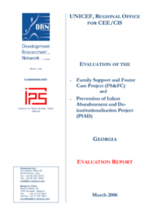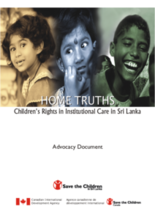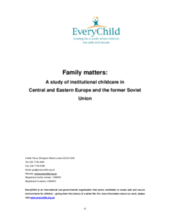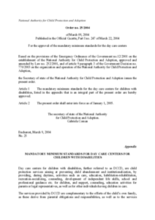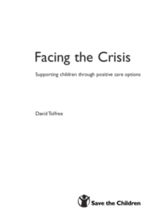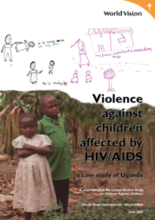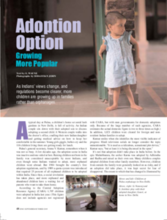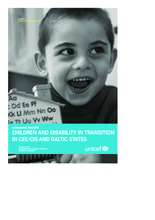Displaying 611 - 620 of 678
Evaluation of two alternative care programmes in Georgia. Focus on contributions towards the construction of gatekeeping systems for alternative care services. Includes detailed lessons learned and recommendations.
Results of a survey examining the quality of institutional care in Sri Lanka. Highlights gaps in existing policies and procedures.
A report discussing the advent and perpetuation of institutional care in Central and Eastern Europe and the Former Soviet Union prior to and since the end of the communist regime. It also provides examples of family-based care as models of care to substitute institutional care and offers recommendations to donors, NGOs and governments for child care reform based on their experience in CEE and FSU.
Outlines minimum standards for the operation of a day care center for children with disabilities in Romania.
A paper with guidelines for keeping children with families and providing proper care and protection for them. It provides examples and plans for those interested in planning care for separated children.
This report presents the survey Kevin Browne and colleagues conducted in 33 European countries to identify the number and characteristics of children less than three placed in residential care without their parents for more than three months during the year ending December 31, 2003. The purpose was to assess the rate and cost of residential care as a response to children in adversity.
Report documenting participatory research conducted on violence against children affected by HIV/AIDS in Uganda. Particular focus on the stigmatisation and discrimination.
Minimum standards for day care centers in Romania.
Documenting shifting attitudes on adoption in India. Highlights persistent difficulties in national policy reform.
Report presents and analyzes new research and data around children with disabilities in the region, the effects of institutional care, and the need for family support services.

